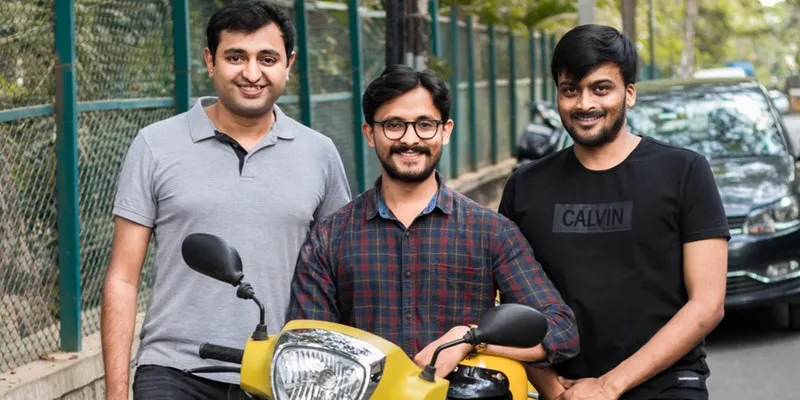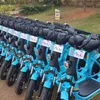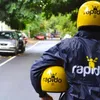Meet the 8 mobility startups helping frontline workers in the fight against coronavirus
These 8 mobility startups joined the war against coronavirus by ensuring mobility for the frontline workforce, including bankers, healthcare professionals, and delivery executives.
All businesses in India have been affected since the lockdown was announced on March 25 to curb the spread of the novel coronavirus. The mobility sector has been badly hit, leaving lakhs of drivers in the lurch.
A mobility report by Google revealed that India showed a 77 percent drop in trips to public places as the central and state governments urged citizens to stay home and maintain social distancing.

With lockdown 4.0, the Indian government allowed many businesses to resume operations, albeit with necessary precautions. It has allowed ride-hailing platforms like and to resume service after 50 days of suspension.
However, with many companies opting for work from home and no business travel, these ride-hailing platforms have seen a significant drop in demand.
To minimise the already damaged business model, most mobility startups joined hands with the government or kiranas stores to help deliver essentials and help transport frontline workers.
YourStory lists some of these startups:
Yulu
Shared micro-mobility service provider Yulu partnered with several ecommerce and hyper-local delivery segments to ensure the supply of essential goods to the citizens amid the COVID-19 lockdown. is utilising its manpower, and Miracle, its fleet of e-vehicles, to deliver essentials.
“COVID-19 has affected the world at large, but this has also given us a glimpse of the good that exists. Several novel initiatives have been taken up by brands across the world to serve people impacted by this situation, and we are in it together,” said Amit Gupta, Co-founder and CEO, Yulu.

The Bengaluru-based startup has rolled out its delivery service of everyday essentials for companies like , , , , Lalamove, and AutoBrix.
Currently supporting home delivery companies in Bengaluru, Yulu will soon extend support in Delhi, Mumbai, Pune, and Ahmedabad.
Zypp
India’s first full-rental electric scooter startup Zypp announced a tie-up with Retail to deliver essential commodities.
The service is currently available in Gurugram, Delhi, and Noida. Apart from Spencer’s, the startup has also inked tie-ups with the likes of Bigbasket, Apollo Pharmacy, Modern Bazaar, and Sodhi Super Market, to deliver essential commodities. Following the partnership, has already crossed over 10,000 online deliveries of essential items.
Zypp has also been working with and as part of its food delivery service.

Uber
At the end of March, ride-hailing company Uber launched a new service 'UberMedic' to help transport frontline healthcare workers to medical facilities, and other critical areas across India.
"Uber is providing UberMedic to transport frontline healthcare workers, and help the government contain the spread of COVID-19 in India. Working closely with a network of hospitals and leveraging our global experience and technology, UberMedic allows hospitals to easily and reliably arrange transportation for doctors and other health workers to and from their homes, as well as to healthcare facilities," Uber India and South Asia President Pradeep Parameswaran said in a statement.

In April, Uber had launched Uber Essential in Bengaluru, Gurugram, Hyderabad, and Nashik. Uber Essential aims to provide reliable and efficient service to locations like hospitals and pharmacies as approved by the local authorities.
Further, the ecommerce giant also joined the ride-hailing company to provide people access to everyday essentials across Bengaluru, Mumbai, and Delhi.
Ola
Ola, the Bengaluru-based ride-hailing unicorn, launched Ola Emergency on its app to enable essential medical trips. The startup partnered with the Ministry of Health, Government of Karnataka, in April, which brought a much-needed mobility solution for many citizens who do not have access to a mode of transport to go to hospital, in case of a medical emergency.
In the same month, Ola tied up with the Haryana government to launch 'Ola Emergency' on its app in Gurugram, to enable essential medical trips. The service is also available in Vizag, Bhubaneshwar, Nashik, and Varanasi.

Further, it also launched Ola Connects (Comprehensive Navigation, Networking, Control, and Tracking Solution) initiative. It collaborated with the government of Punjab to provide officials with a platform to effectively track and manage over 17 lakh farmers’ produce, and their vehicle movement into mandis across the state, while following social distancing norms.
The ride-hailing unicorn shared its technology capabilities to provide a direct channel to pass authentic information to farmers, including distributing security travel passes digitally, thus eliminating the need for physical distribution, which happens at large gatherings.
Zoomcar
Bengaluru-based self-drive mobility startup Zoomcar stepped up to ease the emergency transportation woes faced during the lockdown period. The startup is utilising select vehicles to ensure emergency mobility for the frontline workforce, including bankers, healthcare professionals, and delivery executives.
The service, made available by the startup, ensures partnering organisations can lower the barriers for essential personnel to come in and serve the critical daily and emergency needs of the citizens.
Greg Moran, CEO and Co-founder of Zoomcar, said, “From government officials to healthcare staff, we’ve seen demand come in from multiple emergency functions. To help the nation weather this unprecedented storm, we shall continue to focus on delivering safe, reliable, and affordable self-drive mobility solutions.”
Government officials in Mysore are also opting for Zoomcar for their everyday commuting requirements.

Rapido
, the online bike taxi aggregator, joined hands with Bigbasket, Big Bazaar, and Spencer’s Retail to help deliver essentials across more than 90 cities in the country.

It is also offering a group insurance cover worth Rs 10 lakh for its riders to shield them from financial burden in case of hospitalisation due to COVID-19.
eBikeGo
Smart electric two-wheeler mobility platform eBikeGo offered a monthly subscription for customers and businesses, which starts from Rs 3,600.
"While four-wheelers are aspirational, but due to economic slowdown, plans of buying cars might be on hold right now. Many two-wheeler manufacturers, especially e-scooters, are expecting a rise in demand of their scooters for commuting in the coming days as they are cost-effective and eco-friendly," said Irfan Khan, CEO and Co-founder, eBikeGo.

eBikeGo
Presently, more than 300 scooters of eBikeGO are on the road under this subscription model. The scooters take three hours to fully charge and run for 70 km on one go and can take a load of up to 200 kg. It also provides 24x7 roadside assistance.
Bounce
Bengaluru-based bike-sharing platform Bounce announced the launch of ScooterHero to aid the movement of frontline workers such as healthcare workers, civic authorities, and delivery partners. Individual two-wheeler owners can sign-up on scooterhero.bounceshare.com, and enlist their idle two-wheelers to be used for movement by the frontline workers.
The startup launched ScooterHero to bring ease of transport. Many individual owners with two-wheelers lying idle can enlist their vehicle. They have the option of lending it to be used free of charge or can charge up to Rs 80 per day.

Bounce founders: (from left) Varun Agni, Anil Giri and Vivekananda Hallekere
"This can potentially help thousands of people from the economically weaker section to earn some money from their idle assets," the startup said in a statement.
Edited by Suman Singh












